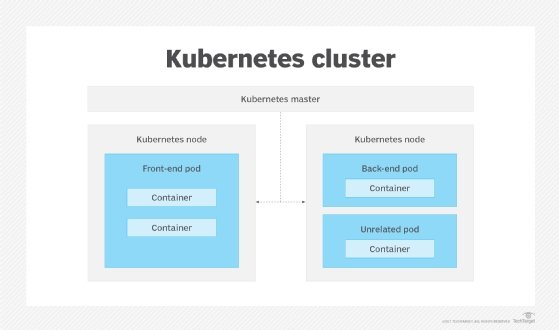
Alliance - Fotolia
Study tips to ace the CNCF's CKA exam
IT certifications are an IT admin's superpower, lending official credibility to technology expertise. Know what to expect -- and practice -- to become Kubernetes certified.
With increased Kubernetes adoption in the enterprise and all the major cloud providers now offering native support for the container orchestration technology, IT admins will look to hone and prove their Kubernetes skills with certifications.
One popular path toward becoming a Kubernetes-certified IT professional is the vendor-agnostic Cloud Native Computing Foundation (CNCF) Certified Kubernetes Administrator (CKA) accreditation, which is relevant to admins who work across a range of cloud platforms.
Preparation
While there is no requirement to attend any classes, the CNCF does offer Kubernetes courses -- including Introduction to Kubernetes and Kubernetes Fundamentals -- to help admins prepare for the CKA exam.
Personally, I started with a review of the main concepts covered in the exam. The questions are essentially split over several core Kubernetes components, each of which is treated as a discrete item.
Some of the Kubernetes concepts covered in the CKA exam include:
- installation and configuration, including the Kubernetes master-node structure, cluster design and high availability;
- pod and service networking, as well as load balancing;
- pod scheduling, resource limits and the role of DaemonSets;
- cluster and OS upgrades; and
- troubleshooting common issues, such as the failure of a worker node.
The CNCF offers resources for candidates to familiarize themselves with the CKA curriculum, as well as the allocation of questions across the exam. A detailed, downloadable candidate handbook also outlines the important expectations and requirements, including those related to the use of the Linux server terminal during the exam.

There's no doubt that this exam is for admins who truly understand how to install, manage and use Kubernetes. According to other IT professionals who have taken the exam, knowledge of how to use Kubernetes commands is essential.
Candidates are allowed to have one additional browser tab open during the exam to refer to Kubernetes documentation -- but taking too long on one part of the exam will cost valuable time. To avoid this, work to have a firm grasp on the command line, especially as some of the tasks admins must perform during the exam often depend on having correctly performed a previous set of tasks.
The exam itself
Candidates have up to three hours to complete the CKA exam, which costs $300 to take. It's conducted online, which requires a webcam, speaker and Chromium-based browser.
CKAD
The CNCF also offers a vendor-agonistic accreditation -- called the Certified Kubernetes Application Developer (CKAD) -- targeted at developers who build cloud-native Kubernetes apps.
This exam covers Kubernetes configuration concepts, such as ConfigMaps and Security Context; how to define an application's resource requirements; and Kubernetes Deployment rolling upgrades and rollbacks.
CKAD is conducted online, takes two hours and costs $300.
Like other Linux-orientated exams, the CKA exam does not follow a multiple-choice format. Instead, candidates need to actively perform the required administrative tasks to achieve a certain outcome. For example, test-takers might need to configure a Kubernetes pod to reach a desired state or diagnose and remediate the root cause of suboptimal Kubernetes node performance.
Unlike some other exams, candidates find out quickly if they pass -- which requires a minimum score of 74% -- or fail. If necessary, there is an option to retake the exam within 12 months at no additional cost. The CKA certification is good for two years.
As the CNCF strives to keep its exam versions up to date with the latest Kubernetes release, check frequently to see what the current version it offers, as there may be discrete curriculum differences between them.





